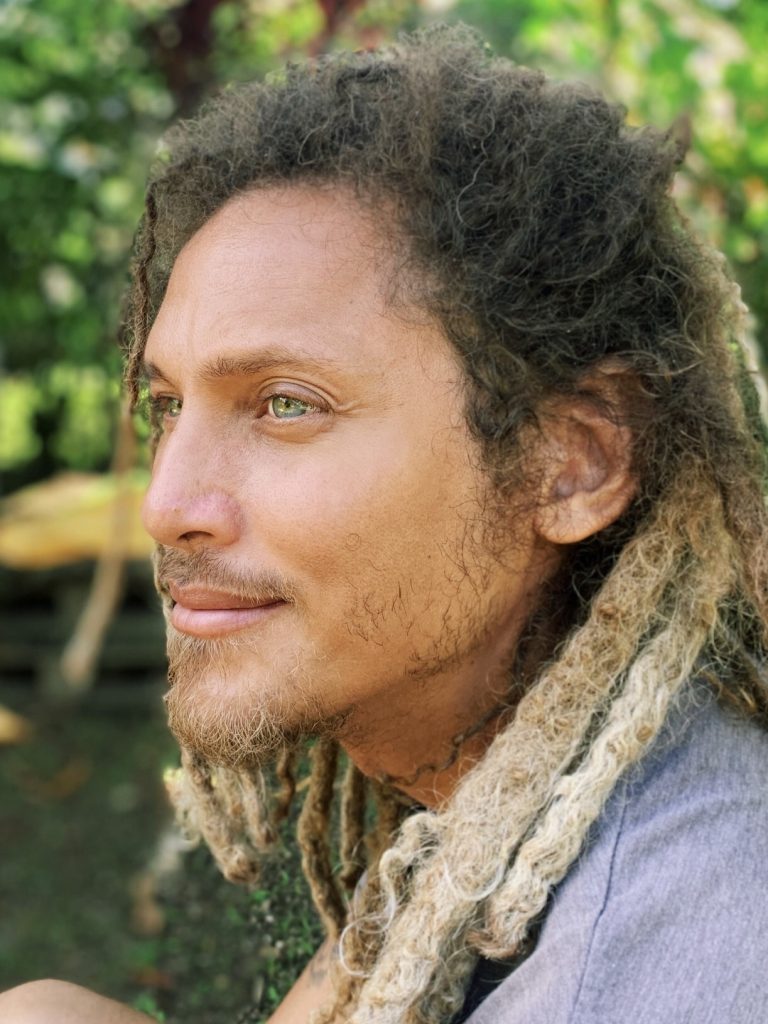Pushing soca online

TYRELL GITTENS
IF they haven’t already, there is no doubt that Carnival revellers are adjusting to the reality of no traditional Carnival celebrations in 2021, due to covid19.
But revellers aren’t the only stakeholders who should be adjusting their lens.
If they haven’t started already, TT’s soca artistes should be planning on a way to remain relevant and profitable in a covid19 world.
But while soca artistes are being encouraged to place a greater emphasis on virtual entertainment and music streaming platforms, pushing soca online is not as easy as pushing an upload button.
“There’s a huge and immense difference between a fete audience and an audience that is viewing a performance on a screen while lying down on a bed or sitting on a couch,” said musician Carl “Beaver” Henderson.

As such, soca artistes must be willing to take the time needed to create and invest in quality performances.
To Henderson, it’s not just a matter of a quality performance but one which can meet the scrutiny of international audiences.
Henderson is one of three local music industry professionals who spoke with Newsday about the challenges TT’s soca artistes face in transitioning to online entertainment spaces.
Once online, soca artistes must be mindful they are no longer performing for just local audiences.
“Most soca artistes perform to audiences at a Carnival fete and a Carnival scenario. Analyse it carefully. Those audience, nine out of ten times, are alcohol-intoxicated audiences.
“People will be more analytical when they are at home and watching your performances sober,” said Henderson.
For example, Henderson said while some soca artistes may “shout” during their live fete performances, this vocal delivery technique isn’t as successful over virtual platforms. If you basically cannot sing a song, it will be difficult to translate yourself into a television audience.”
Referencing world-renowned performers, like Michael Jackson and Mariah Carey, Henderson said, “As great as some artistes are, with all the Grammys they won, up to today, always work with a vocal coach.”
Noting that Olympic athletes would not attend the game without a coach, Henderson said the same concept should apply to artistes before a performance. Soca artistes must therefore make investments in vocal trainers and performance coaches.
If soca artistes take the time to properly hone their craft, Henderson said it will distinguish artists who can successfully transition from performing in front of a crowd to in front of a camera.
But artistes aren’t entirely responsible for producing quality virtual performances or music to be streamed.
“Because of the audiences soca artistes perform for, producers tend to produce towards that intoxicated Carnival party crowd. You tend to find the music that is produced can sometimes get overly noisy.”
With some music streaming platforms having audio criteria, which must be met, Henderson said the quality of music production in TT needs development.
While experience is important, Henderson is encouraging music producers to always consider furthering their craft which includes taking formal training courses.
“At the end of the day, it’s not just a matter of putting up to cameras and going on YouTube live. We have to stop thinking about just the local market.
“We have an opportunity now to press the reset button on our industry to look at the quality of what we are producing.”
Henderson said once greater effort is placed on how soca artistes present themselves and their music, TT’s soca music will be much more competitive on a global stage.
Karrilee FiFi
While placing music on a streaming platform sounds simple, record label manager Karrilee FiFi explains it is quite the opposite.
Local artistes face technological barriers when it comes to promoting their work online. FiFi currently works with On Lock Records and Basshall Records.
With these record labels, FiFi provide A&R services which includes talent scouting and artistic development.
She has worked with artistes like Nailah Blackman, Olatunji Yearwood and Aaron “Voice” St Louis.
“Obviously, now, everything is digital because nobody is really performing anywhere. You have to bank on your streaming revenue. Everybody knows platforms like Apple Music, Spotify and Tidal are going to turn in more royalties as opposed to a YouTube upload. Unfortunately, in the Caribbean, we use YouTube the most because it’s free,” said FiFi.
Artistes must pay to have their music published on streaming platforms like Apple Music and Tidal.
And while Spotify is one of the world’s largest music steaming platforms, with over 300 million monthly active users online, the platform isn’t available in the Caribbean.
Soca artistes must therefore come up with a strategy like using VPNs, for example, to access streaming platforms like Spotify. In using VPNs (virtual private networks), people can appear to be using their electronic device and internet in another country, though they are not actually there. For example, a person using the internet in TT can use a VPN and appear to be using the internet in the US.
Still, FiFi encourages all artistes to research which platforms may be most lucrative to them. However, she notes Apple Music is one of the more profitable platforms.
Getting music on streaming platforms is one challenge for soca artistes, attracting audiences to generate revenue is another challenge.
“If you (as an artiste) actually have a budget to spend on promoting your music then I would not spend the time targeting the Caribbean.
“Personally, I wouldn’t spend any money advertising to a Caribbean market.”
Why would FiFi advise this?
While artistes should maintain the traditional flavours of soca music, innovating their sound to reach different audiences around the world is important. Growing one’s audiences beyond TT’s shores, secures more listeners to generate more revenue on music streaming platforms.
Kiwan Landreth-Smith
With limited avenues to turn a profit, Kiwan Landreth-Smith said artistes are faced with the challenge of convincing audiences to listen their music. To do so, effective advertising will be necessary.

Landreth-Smith is the owner of Kin Sound Studios in Port of Spain.
“Advertising (your music) online is a huge challenge because it’s very hard to expect people to pay to hear your music. Online, most entertainment can be consumed freely.”
But to effectively advertise their work and be competitive online, Landreth-Smith said local artistes must invest in properly presenting their craft.
“Local (music) studios are able to produce content that will fit into the worldwide standard. It’s just a matter of promotion budget and resources to push things forward.”
In his opinion, TT’s creative artistes are not given proper support. For Landreth-Smith, this is especially true when it comes to government support be it financial or otherwise. Referencing Caribbean countries like Barbados and Jamaica, he said creative artistes on those islands are more promoted and supported as part of these countries’ overall brand.
“The creative industry is recognised as a huge generator of revenue (in other islands). In TT we just focus on our petrochemical industry, so the government really isn’t interested. Time and time again you realise that the government really and truly don’t care.”
Landreth-Smith said as the covid19 pandemic continues, the most resilient local artistes would be the ones who are continuing to create. He said artistes should view the challenges of the day as a catalyst to be creative. With proper creative strategies, artistes will be able to work beyond the confines of the pandemic.
“This is the time to sharpen your creative tools and build so, when you get a chance to present it (your work), it will be you putting your best foot forward.”

Comments
"Pushing soca online"